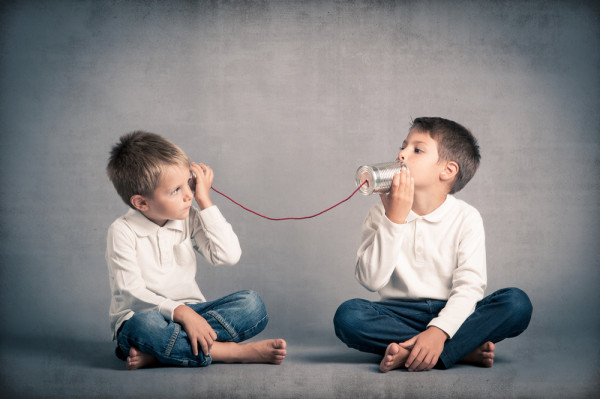Are you like me? As someone is speaking, are you already thinking about the next thing you're going to say? It's been that way for me for my whole life. The first few words I hear send my brain spinning in twenty different directions.
So it's been work, and I mean serious work, to learn how to listen without thinking of my next line. When I'm tired, I can't do the work. When I'm tired I just say what comes to mind – which can get me in trouble.
But if I put in the work, I stand a good chance of just focusing on you when you talk to me. Sometimes, if we're on the phone, I need to close my eyes so that I don't see any distractions. That way I can be fully present.
Generosity is a Habit
Somewhere along the way, as I was growing up, I think I picked up the idea that generosity was some sort of gift or characteristic. Some people had it. Others didn't.
I don't believe you're born generous or selfish.
I believe we're all pretty selfish folks by default. I'm a parent – so I've watched how jealousy, envy and selfishness spring up in my children even if they're in a loving home and given all they could need (and most of what they want).
So I land on the side of thinking that left to our own devices our defaults are all self-oriented.
But I also believe that generosity is a choice. You can choose, even as an antidote to your self-centeredness, to be generous. And to that end, if generosity is a choice, then it can certainly become a habit.
Generosity is a choice you make, which requires a shift in perspective from yourself to someone else. And the more you make the choice to look beyond yourself, the more it becomes a habit.
Generosity Disciplines
So because I believe that generosity can be a habit that you can learn, I've come up with several disciplines that over the years I've talked about and shared with my family.
Now I want to share them with you. And the first one is the discipline of listening.
Can I tell you a quick story?
I tell people stories all the time. So it won't come as a surprise to you that I had told a story to some friends in passing. But they'd been listening. Seriously listening.
They'd heard the story of how Melissa and I had almost broken up during the early months of dating because she'd lied to me (while trying to surprise me). It sounds odd but I hate lying so much that it didn't matter that she was trying to delight me with a surprise. I was more impacted by the lying.
And so they decided, years later, with my wife, to throw me a surprise birthday party a couple of years ago – but without anyone lying.
It took a lot of work. Different people did different things, so that everyone could be honest and never have to lie to me at all (I know, I make my friends jump thru hoops). And in the end, I was shocked when I walked into a favorite restaurant to see what they had assembled.
Generosity starts with a question
Now I've told you the discipline is listening, but I haven't told you how. You already know that it's not thinking about what you'll say next. But let me take you a bit deeper into the way I think about it.
The discipline of listening requires you to put one single question into your head as you listen.
“How can I be part of the solution?”
That's the question. Now sometimes, when you hear the story you're listening to, there's no way you can be part of the solution. In that case, don't worry about it.
Things will change
But if you're listening well, to everything you hear, and you keep asking yourself that question, you'll immediately notice three things:
- You have the opportunity to be FAR more helpful than you might have imagined.
- You are listening better, which is, in and of itself, a gift.
- You probably should have started doing this long ago.
But don't stress with regret. Simply start asking yourself the question as regularly as you can.
“How can I be part of the solution?”
The more you position yourself this way, the more effective the question will be in shifting you from a self-oriented person to a far more generous one.
It even works with my kids
This is the first discipline I teach my children. They're 6 & 8 but they've been hearing about this question for four years and I can honestly tell you it has had an impact on our 8 year old.
It's not a hard question to ask. It's not even a hard question to answer (most of the time). It's just a hard discipline to develop. So don't wait. Start now.
And if you liked this post, would you do me the honor of sharing it with your friends. Everyone likes a generous friend.

